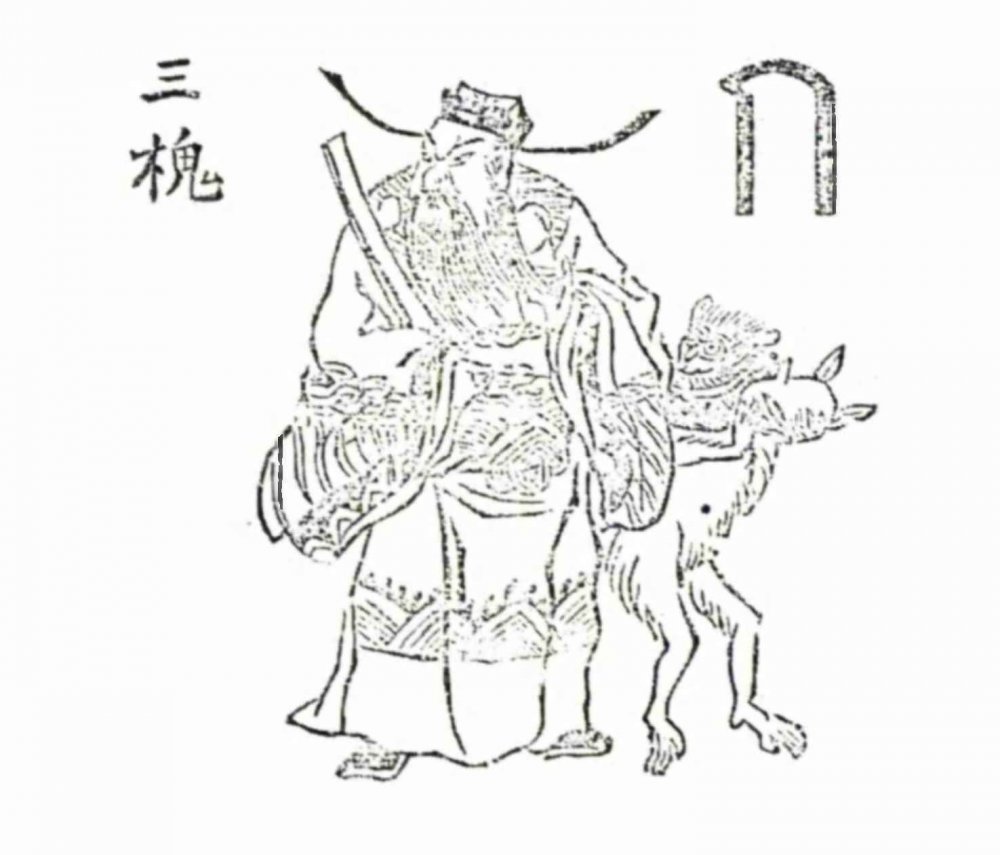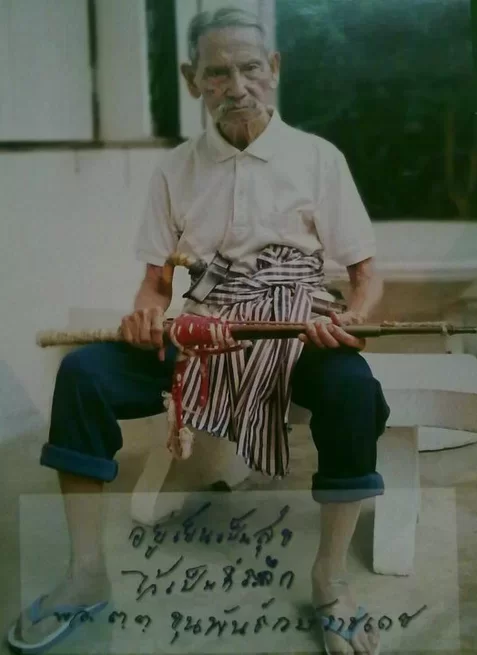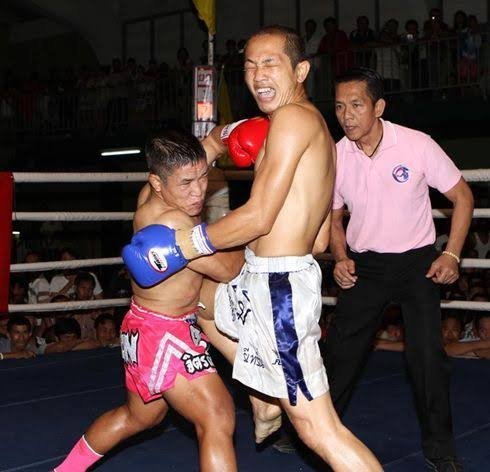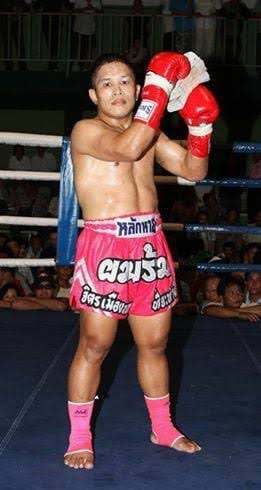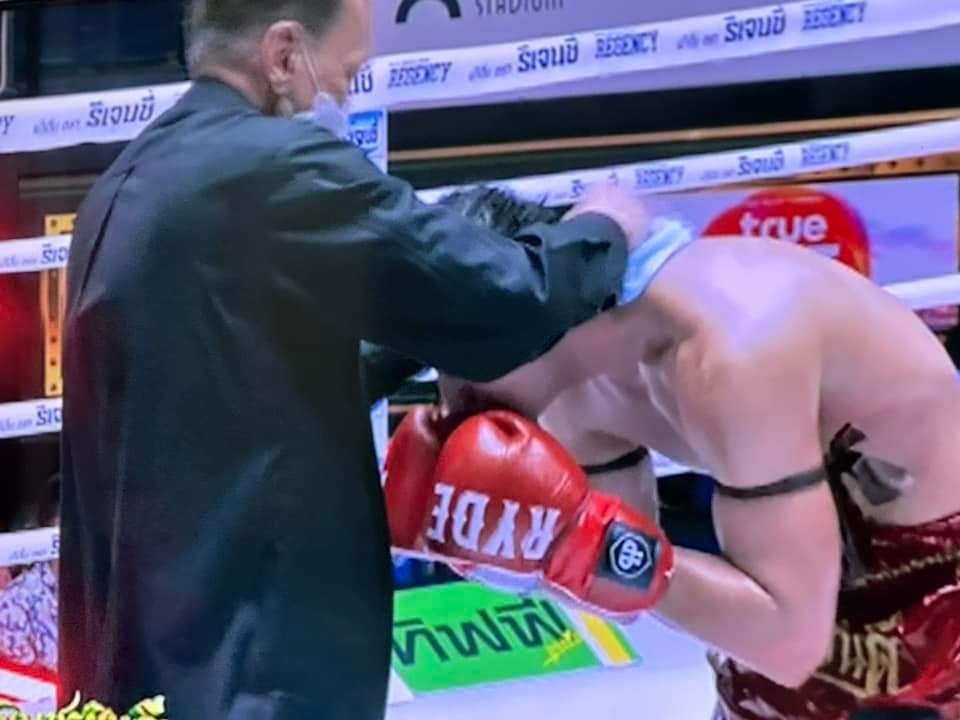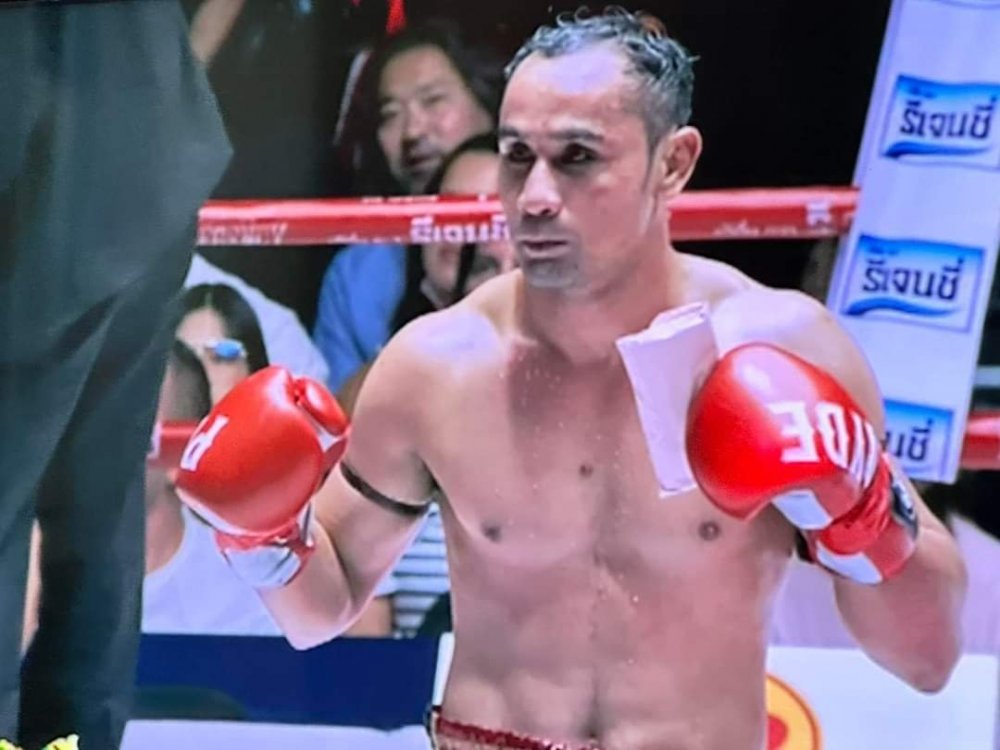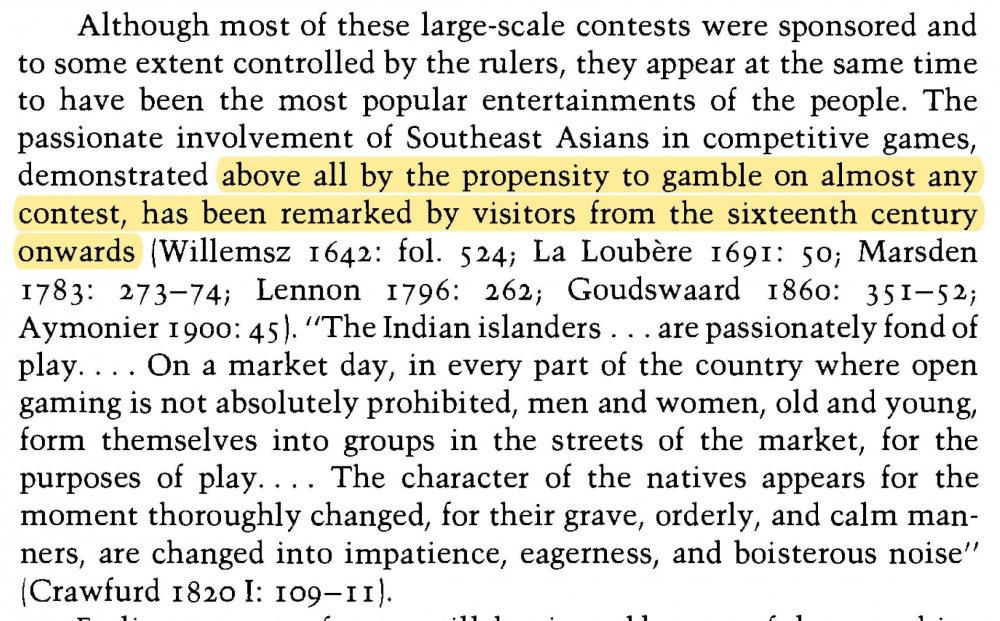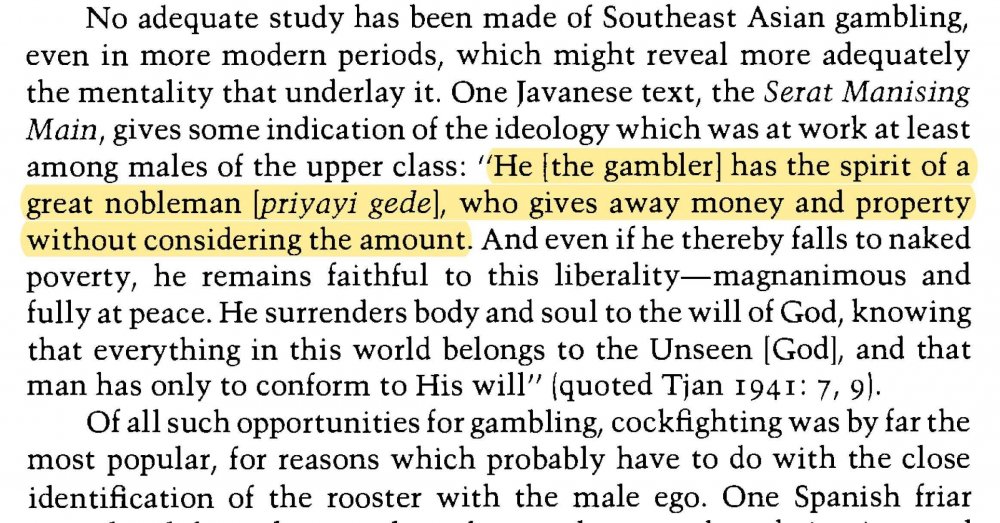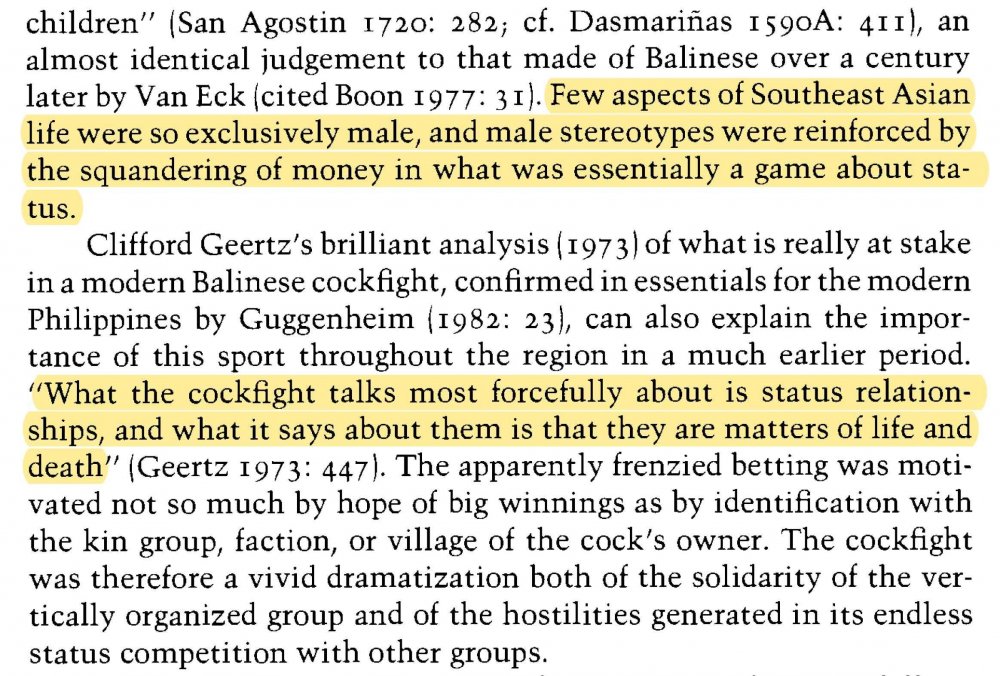Leaderboard
Popular Content
Showing content with the highest reputation on 10/24/2022 in all areas
-
It's not just "Whose winning?"...it's also "Why have the odds not changed?!, or even "Why did the fighter take off his anklet between rounds 2 and 3, is that a signal?" One of the more interesting threads of thought in the movement toward a more "modern" Muay Thai is the idea that gambling needs to be purged from the sport. So strong a view it lead to the shutting down of the famed Lumpinee Stadium, and then its prospective reopening of it under the auspices of being simply an arena where modern MMA-inspired shows are presented, free of gambling. The moral approbation of gambling has a very long history in Thailand, going back to the early 1900s when the gambling houses of Siam were shut down (a gambling passion which had peaked with nearly 40% of state income coming from gambling taxation), as part of a larger moral reform, and Siam's move towards becoming more "civilized"/ Westernized (see The Quest for "Siwilai"). It was at the time not just a matter of moral reform, but also as a means to check the growing power of the Chinese run houses in Bangkok, their secret socieities, and the large and important Chinese worker/labor factions. By 1917 gambling was closed down by law, but in 1927 it was legalized for Muay Thai, leading to a boom in its popularity. If you want to read a detailed history of gambling in Siam/Thailand this is a great source: Gambling, the State and Society in Siam, c. 1880-1945 by James Alastair Warren: Gambling, the State and Society in Siam, c. 1880-19.pdf Leaving aside issues of problems with corruption and moral appropriateness, and just taking up the cultural form of gambling itself, what's interesting is that there is a kind of tension between a Western conception of gambling on sport (with the idea that transparency and pure fairness is essential), and what I suspect is a more Siamese/Thai conception of gambling on sport. There is a sense in which the very notion of undue influence on the outcome of a match is actually included in the betting practice itself. There is still a notion of fairness that grounds sport fighting, but the aim of the gambler is actually to also be betting on (or against) the powers that might also influence the outcome a match. These two things, fairness and influence are in tension. I think one can get insight into this in the incredibly popular huai lottery during the late 19th century which involved guessing (but much more properly studying) which figurative blocks of an alphabet would be chosen by the figure who ran the lottery. Below is a video scroll of the relevant description from James Warren's thesis. Note: They are betting on the influences in the huai lottery, in a form of detective work that examines a multitude of possible causes. Most importantly, such a lottery as it was conceived should not be random. A random lottery would lose interest it was reasoned. Bets were made on the basis of everything from lucky dates, the alliance of semantic meanings, to whether the selector had gone to temple, or his history of choices in the past. The lottery was actually a vast intuitional calculation of causes and forces. TLTR: Twice a day a lottery manager would pick a tile which bore a letter and a pictogram which they hung up on in sack. Networks of gambling prognostications which ended up extending into the provinces of which tile he would pick became a huge preoccupation. In a sense the lottery managers were also betting on which tiles betters would think they would pick, attempting to be both opaque, but also gambling themselves on gambler trends. Randomness can easily stand in for our modern conceptions of "fairness" or "transparency". Instead, the Siamese preoccupation was with the actual forces of possible influence. I suspect that these threads of the preoccupation with influence and forces can be pulled all the way up to contemporary times. Betters are gambling not only on the athletic outcome of a fight (may the best man - or woman - win!), but also upon all the external forces which may shape the fight, whether this is the ability of a powerful gambling faction to get the fight thrown, or to harden the odds to shape the decision, or a promoter to bias judging - or, much more subtly, on a particular gym's ability to prepare and guide a fighter (also an external influence). It is a theater of forces - that in a National stadia would literally be composed of audience members you could see. It is a detective work of not only skill, but also of other minds, reading what fighters might be thinking (or signaling), and the weighing of possible undue corrupting influences. Importantly, there is always a ballast of fairness, and always an outrage of corruption, but the act of betting is composed within the assumption, and actually ON the possibility of influences, extending beyond the ring. A reason for this is that sport gambling has its roots in the struggle for social status itself. One's ability to produce a winner is a show of potency and power, within a social group. A gym that can train a fighter well enough to win shows knowledge and power, but this cannot be ultimately separated from the knowledge and power of one's place within a social group, (which can be reflected in a gym's power to force a favorable match-up for their fighter, or to even harden the odds in their favor). Gambling is about aligning oneself within factional power. Follow from this 19th century report on cockfighting and gambling in Siam, Anthony Reid's status signifier interpretation of the meaning of bets placed (Southeast Asia in the Age of Commerce, 1450-1680: The Lands Below the Winds), if you've been to festival fighting in the provinces you'll recognize a continuity: In seeking to extract the (abstractly rationalized) sport from gambling history you are actually removing it from the very fabric of its meaning within the culture. This isn't to say that gambling doesn't cause all sort of problems for Muay Thai (again, fairness importantly provides the ballast of gambling itself, it exists in tension with the detective work of other minds), or that gambling itself hasn't significantly changed (in that it is no longer bound by closely related social groups, in that the likely majority of which is online through apps - like this); but it does mean to say that when one looks towards what gambling is it is a mistake to not understand that the very idea of influence is actually incorporated into gambling itself, it is part of its conspiratorial passion, and also part of the way that power, influence, karma and chance are experienced within a culture. Fighters and fights become expressions of political powers, both on the local, but also on the national scale, ultimately within a jostling of status. Social Capital actually supersedes financial capital. This post flows into a much larger idea about the meaning of fighting itself, and its value within a culture, which is being developed here, stemming from the seminal anthropological essay "Deep Play: Notes on the Balinese Cockfight" by Clifford Geertz, weaving together the various Siamese historical conceptions of influence itself, and the deeper origins of the meaning and value of sport combat:1 point
-
To appreciate the closeness between magical beliefs (and the passed on technical knowledge to deploy those powers) and the technical knowledge of how to fight, at least in its historical sense, its best to read up on the life of the famed Thai policeman Khun Phantharakratchadet (1898–2006). In the link to the comment below you'll find two great resources. If this interests you, read both. His life embodied a particular kind of Southern hypermasculinity which helps one understand how magical power (knowledge, training) and martial powers (knowledge, training) go together with the creation of social status in the context of modernizing, civilizing Law itself. In short, he became a famous policeman imbued with magical knowledge & Muay Thai (and other fighting arts), who created an aura of invincibility and authority, walking the line between policeman and criminal (nakleng). His position, as a man, in the shifting political landscape expresses a very deep root in Thai male identity. Read about him here: Historically, as we apply these ideas to Muay Thai and gambling there are two basic aspects I would draw forward. The first is that magical technique and fighting technique were at one time seen as braided in Thailand. Many of those practices have now become unconscious or even thoughtless repetitions (the Ram Muay for instance that you see before fights is basically spell casting, and the summoning of supernatural powers. There was a time when the Ram Muay was much more diverse, and likely expressed the local beliefs and knowledges of one's gym/wat). The amulet of the prajet that every fighter wears (now, it is often just a cloth around the bicep, no longer holding an amulet) is a protective device. Still, Thailand's Muay Thai is imbued with these beliefs even at a vestigial manner. And I've even heard first hand of magical battle in the ring. above, Lakai If you know the very short Muay Thai fighter Lakai "The Alien", who now only does "show fight" appearances, if he's not retired; Sylvie's trainer in Chiang Mai Den told us of when he fought Lakai in a local match it was known that Lakai practiced magic. When he would go to the corner between rounds he would allow nobody to touch him, it was said. Den told us of how he defeated Lakai's magic by tying a piece of cloth into his anklet, a cloth that belonged to the skirt of his mother, and throwing a headkick over Lakai's head, veritably breaking his magic (I believe you can see this kick here, the first strike of the fight). The kick was actually a fusion of Muay Thai technique and magical technique. This fight is such a size mis-match the only way to lose, one suspects, is because of magic. This was maybe 12 years ago? So, the two are not completely divorced. The second aspect is that imagined magical influence from beyond the ring (as depicted in the film clip) serves as an analogy of beliefs in hidden influences in general. It is a placeholder for an entire world-view that one is constantly positioning oneself within networks of the propitious, both in terms of sociability, in one's own life (aligning oneself with powers that might influence your life in undue ways), and in terms of pragmatic power. Prosperity is governed by unseen causes, aside from supernatural beliefs, or political networks, is something that goes to Buddhistic beliefs in karma. But, as mentioned previously, it is also more than an analogy, as Thai masculinity of charismatic power involves not only vestigial aspects of magic beliefs, but also active beliefs and practices in the power of men of influence. As gym & gambling powers jostle for social status within the political scene of Muay Thai, they do this in part through their ability to appear to influence the outcome of fights in hidden ways, as marks of their power.1 point
-
Moving away from the idea of the gambler, or the Big Man taking care of those aligned with him, there are very deep roots in Thai culture which I believe help give meaning to what is happening in Muay Thai gambling. I posted this thread on Twitter containing a scene from a recent Thai movie which depicts an underground fight being manipulated by just out of sight magic. I suggest that this notion of "unseen influence" actually makes up much of the passion and dynamic of gambling itself. In this case its superstition and powers of manipulation (beliefs that many contemporary Thais may not consciously hold), but this is not fundamentally different than others "hidden" means of manipulating a fight, from the drugging of fighters, buying off judges, or just exerting social status pressure over close decisions. It is part of a matrix of causal beliefs in hidden social forces. I transcribe the thread below, though its best if you watch the clip. Thread: To understand Muay Thai betting in Thailand I think one has to go deeper down into the very idea of "hidden influences" on events in the culture. This scene from the film Necromancer 2020 gives clue to how powers outside the ring are connected to fight outcomes. This is part of the lore of magic, male power & charm that helps shape how persons of influence are read. I would argue that ultimately, a powerful gambler pulling strings on the outcome of a fight, and a person using magical influence to win a fight are of the same cloth. The betting on Muay Thai in Thailand *involves* the possibility of undue influence, in fact influences are folded into the game of predicting which causes will effect the outcome of a fight. Historically magical techniques & fighting techniques were both taught in wats, both consisting of a *wicha* of battle and combat. But importantly, men of social power (those that could effect outcomes) held powers of persuasion & invulnerability as part of their social potency. We see two fighters "alone" in the ring. Thais see each fighter as expressing social networks of real political force & the powers of various wicha (if only the knowledge & practices of how to train a fighter and optimally prepare them for a fight). The lines between these kinds of powers, techniques & knowledges are blurred, and make up a metaphysical concept of what power & status is. The scene in the movie is a caricature of an underground fight & nefarious (criminal?) forces, but these beliefs are part of a much wider fabric of social magnetism, and hidden influences. When ppl gamble, they are betting on the sum of influences, which involves everything from physical preparation to hidden influences of powerful men, who in various subterfuges can become "string pullers", not entirely unlike the magic that is depicted in this film scene (by analogy). But, it's more than analogy, because in the very conception of hypermasculinity resides magical qualities of charismatic influence (ittiphon) & invulnerability (ittirut). This is not some exotic set of beliefs. We have it in the West as well. Charismatic leaders have a sense of unexplained power over others, and a certain untouchability, unkillability. A mafia boss that survives hits, a gunslinger that survives every showdown. This aura is perhaps humanly universal. But in Thai culture it unfolds in a unique concept of what technique, knowledge, magic & status are. What is happening in Thai Muay Thai gambling is that people are betting not only on the fighters, but on all possibilities of influence AND amid gamblers themselves a power struggle within these very rooted conceptions of power & status. Attempts to rationalize the Muay Thai fight, modernize it in a certain way, by removing audiences (as influence), removing gambling (& that power struggle), creating a kind of mathematical transparency, actually cuts all the cultural strings to those things outside the ring which make fighting meaningful. This isn't to say that corruption isn't a serious problem. It is because influence is always in tension with fairness, and a sense of fairness is what creates stability...but in Muay Thai it is that very tension that creates the dynamic of interest and passion.1 point
-
Think about the Javenese description of "the gambler" in the Anthony Reid citation above: "The gambler has the spirit of a great nobleman, who gives away money and property without considering the amount". This feeling of largess and plenitude, of the man with powerful nobility who caretakes for those aligned with them, is found in Thai social status as well, in and out of gambling. Consider this - at least to me - touching moment when the Petchyindee patriarch Hia Now climbed into the ring and gave a 39 year old Sam A a 100,000 baht bonus. This was, I believe, an "injection" (money offered during a fight to propel a fighter forward. What makes this somewhat touching in the larger context. Sia Boat, the son of Hia Now, had just come off a personal (status) battle with Chatri Sityodtong who runs ONE Championship (a nouveau-style Muay Thai promotion inspired by MMA). Sia Boat had pulled all Petchyindee fighters out of ONE Championship in what looked to be a power struggle of social status within Thailand itself. Sia Boat, who has become something of a defacto spokesmen for promotional stadium Muay Thai, received a lot of blow back for the move, criticism that he was not looking out for the financial benefit for his fighters. This was the first fight involving a significant Petchyindee fighter following the pull out, and it featured a very Old School femeu, 39 year old Sam A, fighting in an old style of Muay Thai (not favored by ONE ruleset), vs a powerful, much larger, younger, aggressive PK opponent. Samingdam Chor.Ajalaboon. Sam A pulled off an unlikely win, demonstrating traditional femeu Thailand tactics, and Hia Now climbs into the ring and hands him the injection. It's a symbolic moment, more than it is a financial one. It goes back to that Javanese description of the gambler. The man of largess. The nobility of care out of prosperity, answering through the fight itself and this moment, the social media currents that may have turned against Petchyindee. Hia Now has been promoting fights for more than 50 years.1 point
-
Here is the larger context of Anthony Reid's observations on betting in cockfighting from his Southeast Asia in the Age of Commerce, 1450-1680: The Lands Below the Winds. These are three screen cap paragraphs from the same section. They are speaking to the 500 year heritage of sport gambling in Southeast Asia, the social status positioning of the gambler, and the masculinity virtue that is expressed.1 point
Footer title
This content can be configured within your theme settings in your ACP. You can add any HTML including images, paragraphs and lists.
Footer title
This content can be configured within your theme settings in your ACP. You can add any HTML including images, paragraphs and lists.
Footer title
This content can be configured within your theme settings in your ACP. You can add any HTML including images, paragraphs and lists.
